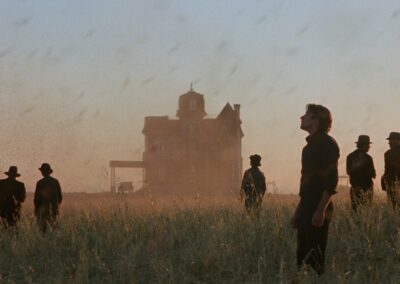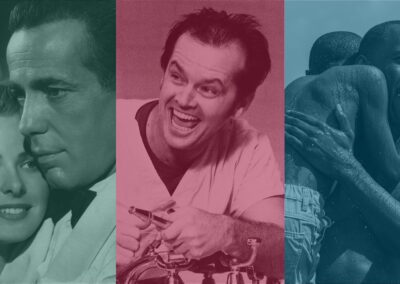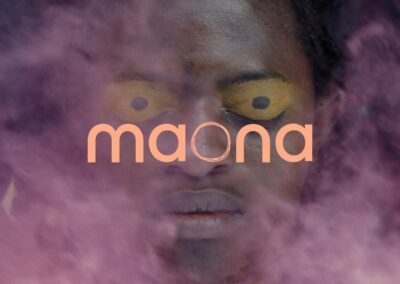The darkest days of December might not be the obvious time to visit a mythical Scottish island called Summerisle but any chance to see the 1973 cult British folk horror masterpiece The Wicker Man up on the big screen is not an opportunity to be missed. It’s certainly not going to be one you’ll be quick to forget, either. This is a movie which still haunts audiences half a century after its initial (disastrous) release and is likely to continue doing so for the next 50 years or more. Any discussion about the film has to be a bit careful not to give too much away – it has one of the greatest of movie endings – an unforgettable baptism of fire; so I’ll be careful. Here’s what you need to know…
Firstly, it was directed by Robin Hardy (whose career floundered afterwards) and was written by Peter (Equus) Shaffer’s twin brother, Anthony, who had previously penned both Hitchcock’s grubby Frenzy and the celebrated whodunit Sleuth in 1972 and who would later write a couple of successful Agatha Christie adaptations – Lumet’s star-studded Murder on the Orient Express in 1974 and John Guillermin’s Death on the Nile in 1978 (both films recently remade my Kenneth Branagh, of course).
It stars Christopher Lee, in what was apparently one of his favourite performances, and TV actor Edward Woodward, who was best known at the time for starring in the tough British cop show Callan (an under-rated movie adaptation was made the year after Wicker Man) and, surprisingly, went onto make The Equalizer (recently turned into a reasonably successful Denzel Washington franchise). If you ever happen to be in Padstow, in Cornwall, you can visit his grave there (he died, aged 79, in Truro hospital). It also features another sexy turn from Swedish actress Britt Ekland, best known at the time for having been married and divorced to Peter Sellers and playing the role of a gangster’s wife who is also Michael Caine’s “bit on the side” in the brilliant crime drama Get Carter in 1971. She was heavily pregnant during the shoot, not that you’d notice. Horror actress Ingrid Pitt (who had recently appeared in both The Vampire Lovers and Countess Dracula) and Australian actress (and former Mrs Sean Connery) Diane Cilento are also along for the ride.
It was mostly shot (by veteran Harry Waxman, who began his career on John Boulting’s Brighton Rock in 1948) up in the Scottish Highlands (Stranraer, the Isle of Whithorn, and Burrow Head) but some work was also done at Wookey Hole in Somerset and Staplehurst in Kent.
Probably a real highlight is Paul Giovanni’s brilliant soundtrack, which includes a great many “new” folk songs performed by the group Magnet. The songs, which used some of “folk collector” Cecil Sharp’s ideas for inspiration, are integral to the plot and add to the film’s haunting qualities – they seem to be rooted in the same rituals and myths the movie keeps throwing up – reminding us that magic still lurks at the heart of ancient British life – something which definitely threatens organised religions’ take on things (a key theme in the movie).
The plot is deceptively simple. A child has gone missing on an isolated Scottish island and a mainland cop (Woodward) is sent to find out what happened. The locals are unhelpful and strange things soon begin to occur. A genial Christopher Lee literally lauds over the community (he’s Lord Summerisle) and knows a lot more than he’s letting on. It’s all got something to do with sex and the harvest and Morris dancing. As already intimated, the film was met with bafflement when first released and immediately cuts were demanded and it was buried as the bottom half of a double bill with Nic Roeg’s Don’t Look Now (that “other” 1973 British horror classic), unloved, misunderstood and butchered.
We now know that its influence can be felt in many subsequent British films (Ben Wheatley’s work especially but you can also see its shadow writ large on Alex Garland ‘s 2022 head-scratcher Men, for example); that an American remake, starring Nicholas Cage, was probably one of the most mis-guided movies ever made and that, inevitably, over time, The Wicker Man has been reappraised, restored and, for its 50th birthday, spruced up digitally so, if you’ve never seen it, then now’s your chance.
And if you know it well, then why would you not want to sit in the dark, in the company of others and again marvel as its audacity? Because that’s what The Wicker Man is: a truly audacious piece of film making.
The recent Powell and Pressburger season has reminded us that, whilst we know this country can produce powerful and passionate naturalist dramas, our greatest film makers are also able to take on the bucolic and the rural. The Romantic love of the countryside and nature that can be found in the works of Wordsworth and Keats et al. and the novels of Thomas Hardy runs deep. Of course our great cities can inspire superb stories, but so can our lanes, streams, woods, villages and “Holloways.”
And undeniably, the UK is good at producing movies which investigate urban mores and manners and inequalities.
But you don’t have to travel very far in this country before you realise that there’s a lot of strangeness at its heart too. A lot of oddness. Quirk and darkness. Something found in lost stone circles, strange Celtic crosses, burial mounds, ancient Anglo Saxon ruins, in the “other” languages some of us still speak and in our accents. In our cliffs and caves; our woodland, fungi and fauna. Perhaps etched, deep in our hearts? The Wicker Man is not the most obvious example of a “British” film, but, like Powell and Pressburger’s A Matter of Life and Death, for example, it’s a film that taps into something that is deep and primal, passionate and strangely “ours” too.
Don’t miss.
See The Wicker Man on Wednesday 6th December at 8.30pm. Click here to book tickets.
Dr Andrew C Webber is a Film teacher and examiner with over 37 years’ experience. He currently contributes to both the Cinema of the 70s and 80s magazines (available on Amazon); cassette gazette fanzine (available from cassette pirate on e-bay) and the Low Noise music podcast available on Spotify and Apple podcasts.


